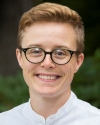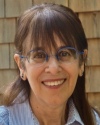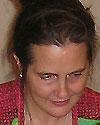2019-2020 CTL Fellows
“Teaching Healthcare Economics Through Case Studies”
The United States healthcare sector absorbs 18 percent of our Gross Domestic Product. Unfortunately, the United States healthcare system is very hard to understand because this sector encompasses a diverse set of industries with public, non-for-profit, and for-profit sellers and buyers. Examples of these varied and unique industries include the hospital industry, the pharmaceutical industry, the physician services industry, the medical devices industry and the health insurance industry. Each of them have their own very unique set of institutional features. Therefore, one must first understand the institutional features behind each industry before applying economics to understand the potential implications of a particular policy proposal within that industry. With this in mind, the main goal of this proposal is to elaborate a set of teaching materials and case studies that can be used by students to master the institutional features of each different industry and develop economic models that to understand what is driving market outcomes in these industries.
“Interactive Learning in a New Laboratory Environment for Engineering Thermodynamics”
Engineering Thermodynamics is a junior level course that seeks to understand how to extract and utilize energy to make useful systems for society. As a mathematically rigorous course that introduces many complex ideas and relationships, we also discover the connection to countless real world applications and practical devices that are a part of our daily lives. From the simple process of boiling water on a stovetop to the complex interaction of combustion and power extraction in a car engine, a laboratory component enables students to learn engineering thermodynamics through hands-on applications. I plan to use the CTL fellowship opportunity to focus on the development of a laboratory component to the course that provides a rigorous and engaging experience for the students. This will include both the identification and planning of the experiments and lab demonstrations that students would perform as well as the investigation of the methodology of demonstration. The goal is to incorporate programming, interactive demonstrations, and experimental construction into appropriate laboratory components that best enhance the students experience in learning the material.
“Mastery-Based Grading in Mathematics”
No matter which department you work in or course you teach, every semester ends the same way: entering final letter grades. As a faculty member, what do these letters mean and how do they translate to acquisition of student skills? As a student, is the final grade transparent and does it reflect student knowledge and skills? We are increasingly living in a skills-based economy and as we continue to emphasize the importance of course objectives and learning objectives that target tangible acquisition of skills, the way in which we evaluate students should correspond to these goals. In a mastery-based grading system, course objectives are the primary focus with students provided opportunities to demonstrate mastery of the objectives. By clearly outlining objectives and expectations for mastery from the beginning of the semester, this grading system seeks to ease the burden and tension surrounding partial credit, increase transparency of grades, and thus reduce student anxiety. For my project I will implement a mastery-based grading system in a Mathematics class to highlight the benefits and challenges of such a system, whose principles can be applied to any discipline.
“Supporting and Evaluating Collaborative Work in Project-Based Courses”
While the value of group-based assignments for undergraduate students is clear, the pedagogical practice of supporting group formation and effective collaboration is difficult. Students must learn to effectively communicate across difference, negotiate the division of work, and resolve differences. This project will investigate best practices associated with with supporting and evaluating semester-long group collaboration. Specifically, it will focus on the following: 1- the development, observation, and testing of in-class activities to promote team cohesion and effective communication; 2- a redesign of the collaborative writing component of the project-based course in order to more effectively support and evaluate group collaboration. By taking on this project, I hope to significantly improve the quality of Action Lab projects, while actively teaching students the components that comprise good teamwork and collaboration.
“Reframing the Value of Racial Diversity for Majority Groups”
This pedagogical approach aims to reorient both classroom discussion and dialogue in the broader campus community. Though teaching, I realized that while most students can easily understand and articulate how the programs that promote racial diversity have the potential to minorities, they have consistently struggled with articulating how they also benefited the dominant group. Developing a compelling reframing strategy will not only enrich students’ understanding of social relationships but also has the potential to improve the existing campus community.
“Inquiry Through Art: Reggio Emilia in Higher ED”
I will explore how aspects of the Reggio Emilia approach to early childhood education can be adapted for higher education. While the Reggio Emilia method focuses exclusively on early childhood learners, its use of artistic practice as a means to ask questions about the world is ideal for many my courses in arts and community. Some of the Emilia methods I hope to adapt include: documentation, an iterative approach, an emergent curriculum rooted in curiosity, collaborative education, and artwork as theorization. I hope that an in-depth study of Reggio Emilia will yield new techniques and frameworks for growing and integrating the intellectual and artistic pursuits of my students.
Blase Provitola
 “Diversifying Intermediate French”
“Diversifying Intermediate French”
Blase Provitola will be developing original activities that promote learning through increased diversity in the French language classroom. Their project aims to use cultural realia to expose students to aspects of contemporary society that are not often represented in textbooks (colonial history and its connection to immigration; working-class movements; feminist, LGBT, and transgender social movements). Since these social questions are best explored through a wide variety of media and genres, this project will include songs, comics, zines, films, poems, newspaper articles, photographs, maps, and interviews. Language will emerge from these activities as a dynamic, living entity that is evolving in relation to the demands of contemporary French society and culture. These materials will be primarily aimed at Intermediate French, but this project will also ask larger questions about how to diversify teaching curricula across languages as well as more broadly across disciplines.
“Math of Money: Student Initiated Projects”
In my recently created course, Math121 Mathematics of Money, students were given data to use for examples and problems. Although the topics are relevant, having the students deeply explore topics of special interest may generate excitement in the course. To this end, I will work with students to create projects that are real, current and resonate with them. For my project, I would like to investigate techniques in creating authentic projects that also are interesting to other fields.
Carol Any
“Literary Classics and Us”
I will test it in my first-year seminar, The Brothers Karamazov, a course I have taught four or five times. My goal will be to help students relate to this classic novel, written nearly 150 years ago in a culture very different from our own, by connecting it to their own lives. This project would fall under the category of “adapt[ing] or develop[ing] a pedagogical mode.” Our consideration of the novel will be structured by two overarching questions: What behaviors do we notice among the characters? Do we recognize the same behaviors in our own life experience and observations of ourselves and others? Working with a partner, each pair of students will be responsible for tracking a specific behavior across the entire novel, wherever they may find it (across scenes, in different characters, etc.). They will look for examples of this behavior in their own experience. The behaviors fall into three general categories: family, social attitudes and interactions, and moral codes.
“No F’s in Linguistics”
I have been giving “F’s” in my “Introduction to Linguistics” course practically from its inception in 1996. This is undesirable. As well as its being a literal failure on the student’s part, it is also a gross failure on my part to teach? My goal in this project is to come to a point where no one gets an “F” in Linguistics 101. The first part of this project will be to change how the class time is spent. I am going to rewrite all my lectures, making them crystal clear. I also want to explore possibilities of having the students working in small groups during class, all with the aim of improving their learning. Thirdly, I am particularly excited about the possibility of having student summarize what the class meant to them at the end of each class meeting. Lastly, I want to help students learn from their mistakes. To this end I want to allow them to retake their tests and to allow them to redo homework.
Anna Terwiel
My classes often examine material related to race, gender, class, and sexuality and I allocate a significant part of classroom time for discussion. These discussions present opportunities for learning and mutual understanding but they also present challenges. Not only do participants approach these issues from different life experiences, they may not have a shared understanding of what constitutes acceptable speech in a college classroom. What teaching strategies can help create the conditions for conversations that are both inclusive and intellectually robust? My project will examine recent pedagogical scholarship, including feminist and anti-racist approaches, to reflect on and expand my current strategies in the classroom.










